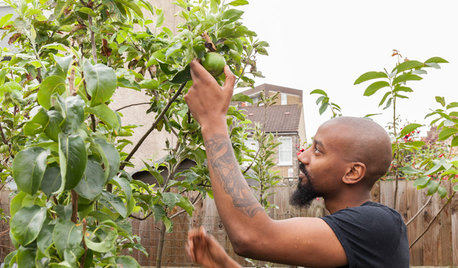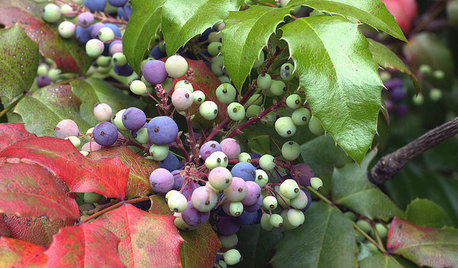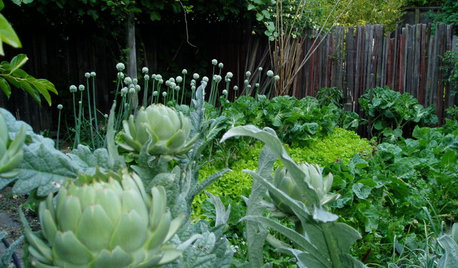Toxins in Horse Manure?
tanyas
17 years ago
Related Stories

GARDENING GUIDESThe Poop Scoop: Enrich Your Soil With Good Old Manure
Get over the ick factor already — this natural super-ingredient for soil has so many benefits, you'll wonder why you ever went chemical
Full Story
HOUZZ TOURSHouzz Tour: A Texas Home Gets a Healthy, Fresh Start
Mold eradication was just the beginning for this Austin family's home on a creek bed — toxins of all kinds now don't make it past the door
Full Story
FUN HOUZZThe Cutest Darn Animals on Houzz
You might end up admiring these horses, goats, llamas and more until the cows come home
Full Story
GARDENING GUIDESLush, Foodie Abundance in a Small Urban Garden
This modest backyard garden provides its owner with fruit and vegetables all year round, thanks to an innovative low-maintenance approach
Full Story
GARDENING GUIDESGreat Design Plant: Mahonia Aquifolium for Birds
Oregon grape puts on a bold spectacle from spring through winter and is ideal to brighten partly shady corners in the U.S. West
Full Story
HOUSEPLANTSMeet a Houseplant With Excellent Communication Skills
It droops when thirsty, revives quickly and thrives under fluorescents. You may want to hire this hard worker for both home and office
Full Story
FRONT YARD IDEAS10 Ideas for a Front-Yard Edible Garden Your Neighbors Will Love
Choosing attractive, well-mannered plants and sharing the bounty will go a long way toward keeping the peace
Full Story
GARDENING GUIDESGet on a Composting Kick (Hello, Free Fertilizer!)
Quit shelling out for pricey substitutes that aren’t even as good. Here’s how to give your soil the best while lightening your trash load
Full Story
FARM YOUR YARDHow to Build a Raised Bed for Your Veggies and Plants
Whether you’re farming your parking strip or beautifying your backyard, a planting box you make yourself can come in mighty handy
Full Story
GARDENING GUIDESGreat Design Plant: Athyrium Filix-Femina
If you need a well-mannered plant that shines in the shade, lady fern is for you
Full StoryMore Discussions








Violet_Z6
Dibbit
Related Professionals
Brentwood Landscape Architects & Landscape Designers · Aurora Landscape Contractors · Williamsburg Landscape Contractors · Chelmsford Landscape Contractors · Deerfield Beach Landscape Contractors · Gresham Landscape Contractors · Kaysville Landscape Contractors · Middle River Landscape Contractors · Morrisville Landscape Contractors · North Plainfield Landscape Contractors · Woodbury Landscape Contractors · Clermont Decks, Patios & Outdoor Enclosures · Hobart Decks, Patios & Outdoor Enclosures · Palmetto Decks, Patios & Outdoor Enclosures · Somerville Decks, Patios & Outdoor EnclosuresDibbit
tanyasOriginal Author
Kimmsr
Dibbit
captaincompostal
Kimmsr
triple_b
cymraes